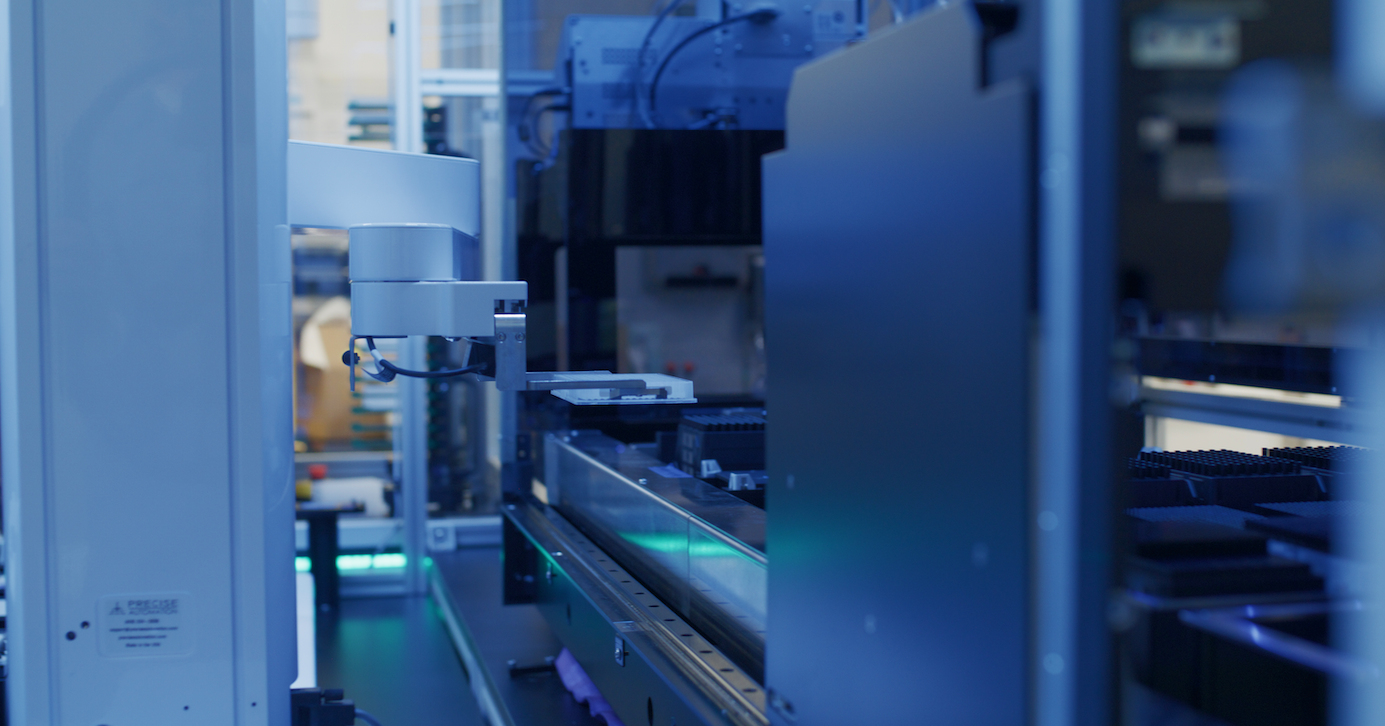BioHive-2 to speed up drug development by several years

The biopharma company Recursion has put into operation BioHive-2, the most powerful supercomputer in the pharmaceutical industry.
The new BioHive-2 supercomputer at the headquarters of biopharma company Recursion in Salt Lake City debuts at number 35 on the current TOP500 list of the world's fastest supercomputers. This improves the system's ranking by more than 100 places compared to its predecessor.
This progress is part of the company's recent efforts to accelerate drug discovery using supercomputers. BioHive-2 is equipped with 504 Nvidia H100 Tensor Core GPUs. The resulting Nvidia DGX SuperPOD achieves an AI performance of 2 exaflops, making it almost five times faster than the first-generation system, BioHive-1, according to Recursion.
"Just as with large language models, we see AI models in the biology domain improve performance substantially as we scale our training with more data and compute horsepower, which ultimately leads to greater impacts on patients’ lives," said Ben Mabey, CTO of Recursion.
"A real turning point in healthcare"
The performance is critical for rapid progress because "biology is insanely complex," Mabey said. Developing new drug candidates can take years and requires millions of lab experiments. Recursion itself conducts more than 2 million such experiments per week, according to the company.
But with AI support from BioHive-2, Recursion's scientists can now select the most promising areas of biology for their experiments. "With AI in the loop today, we can get 80% of the value with 40% of the wet lab work, and that ratio will improve going forward," said Mabey, drawing parallels to chip design: "We are in the early stages of a very interesting time where just as computers accelerated chip design, AI can speed up drug design."
However, biology is much more complex, "so it will take years to play out," he said. "but looking back, people will see this was a real turning point in healthcare."
Recursion collaborates with biopharma companies such as Bayer, Roche, and Genentech and has a database of more than 50 petabytes of biological, chemical, and patient data. On BioHive-1, the company developed a family of foundation models called Phenom.
AI News Without the Hype – Curated by Humans
As a THE DECODER subscriber, you get ad-free reading, our weekly AI newsletter, the exclusive "AI Radar" Frontier Report 6× per year, access to comments, and our complete archive.
Subscribe nowAI news without the hype
Curated by humans.
- Over 20 percent launch discount.
- Read without distractions – no Google ads.
- Access to comments and community discussions.
- Weekly AI newsletter.
- 6 times a year: “AI Radar” – deep dives on key AI topics.
- Up to 25 % off on KI Pro online events.
- Access to our full ten-year archive.
- Get the latest AI news from The Decoder.